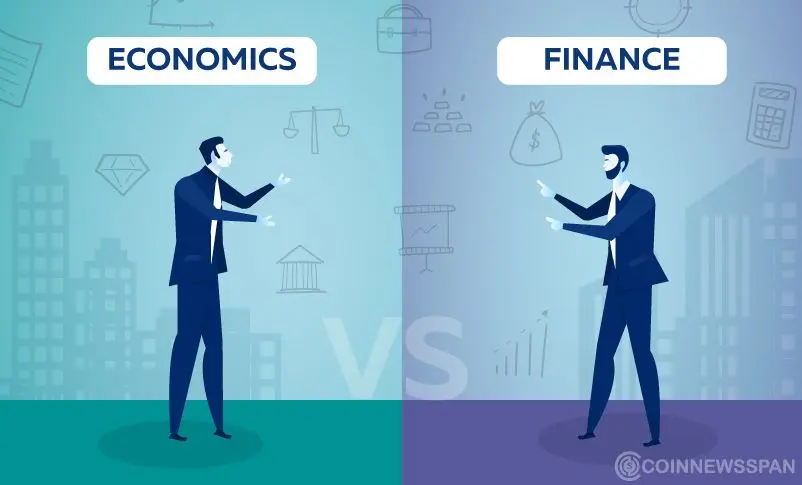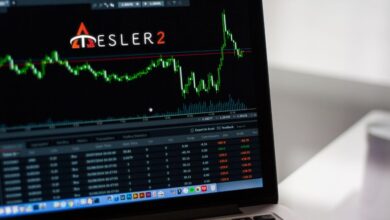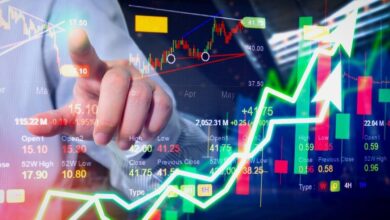The Key Differences Between Economics and Finance Explained

Finance and economics are considered to be two separate subjects, each with its area of specialization. Yet they complement and influence one another and play a critical role in determining market factors and stability.
The focus of this post will be on what is the difference between economics and finance even though the dividing line is thin and not very clearly pronounced. The key takeaway is that economics is painted on a very wide canvas and deals with the performance of a country, region, or markets. Finance, on the other hand, is more industry or business-centric and is mostly about analyzing profitability, risk, and return.
The line between the two is blurred when it comes to professionals in each field. Economics and financial experts are employed in governments, large corporations, and in financial markets regardless of their specialization. An expert may be a policymaker in a government while an economist may be charting the finances of an organization.
However, at some fundamental level, finance and economics differ and this will be studied now in some detail.
An Overview of Finance
Basically, finance is a derivative of economics and can be described as the study of financial instruments, creation and management of money, banking, assets and liabilities, and everything else that constitutes the fiscal system. Finance typically revolves around the cost of capital, rates of return on investment (ROI), interest rates, money flows, financial structures, and the assessment of risk – all at a macro level.
Individuals with a degree in finance have a wide range of jobs to choose from. Wall Street analysts, fund managers, commercial banks, insurance, and specialists financial service providers are some of the openings they can opt for. At the top of the corporate ladder are senior management positions in companies and blue-chip corporations.
Finance can be seen from the perspective of three distinct categories – corporate finance, public finance, and personal finance.
Corporate finance involves the management of assets, liabilities, debt, and revenue. Businesses raise finance through a range of instruments, investments, and credit from monetary institutions. A business will only expand and grow and become profitable if it can manage debt in an optimal manner.
Public finance deals with budget procedures, government expenditures, public policy-making and financial instruments, tax systems, debt issues, and other functioning of the government, a mix of economics and finance.
Personal finance is at the micro-level of economy finance and concerns almost all decisions and activities taken by an individual or family. These include mortgage planning, savings, budgeting, insurance, purchase of goods and services, and planning for retirement.
Finance is what keeps markets bubbling with a constant stream of new instruments and derivatives. Advanced financial products are designed and created to address market demands and needs, buffer investors from risk, and protect the economy from slipping into recession.
An Overview of Economics
Economics is a social science that encompasses multiple sectors. Some of the primary components that are considered by economists include the distribution of goods and services, production, consumption – all aimed towards analyzing and explaining the workings of economics and finance. Modern economics in practice is heavily tilted toward math and depends largely on data-based analysis even though it is generally considered to be a part of the “liberal arts” and the social sciences.
Finance economics can be broadly categorized into macroeconomics and microeconomics.
Macroeconomics is a branch of economics for finance that studies how the larger spectrum of the economy reacts to fiscal policies. Studies in macroeconomics include gross domestic product (GDP), national income, inflation, unemployment parameters, production and consumption of goods and services, and other points directly related to economics.
Macroeconomics provides specialized tools for monitoring and tracking economic indices like inflation and deficits that have a direct bearing on the decision making of investors and the reaction of stock markets and exchanges. For example, macroeconomics will determine the direction of central banks like the U.S. Federal Reserve to ensure that the impact on the U.S. economy is not adversely impacted.
Graduates of economics will find openings in academia and in consulting firms, investment banks, and other corporations as economists, as professionals they will provide analysis and projections based on national economic forecasts that will help in the company’s decision making for growth.
The Core Differences between Economics and Finance
From the overview, it is seen that apart from several points of divergence in the two, there are a number of similarities.
Both are related to commerce and explain the movement of money in the market. Whenever there is a change in the monetary policies of governments (economics), it affects the individuals (finance).
The finance vs economics debate can be summarized as follows.
- Finance is relevant to the micro and macro level as in the case of the individual and the corporate but economics works only at the state, country, or region level where monetary policy decisions are required.
- A financial analyst analyzes the monetary effects of investment decisions, and focuses on maximizing profits, and capital budgeting through various business tools. An economist will chalk out overall policies that will impact the entire market, all industries, and every sector.
- All finance decisions are product dependent. Finance provides tools that can estimate the value of money in the long term and help determine the methods that can get the best returns based on different factors. Economics is based on theories and strategies that help in investment decisions by a company or industry or to frame overall monetary policies.
- In finance management, decision-making powers exist at multiple levels in an organization vs economics where it lies with the policy-framing institutions or the government.
- Fiscal decision-making stems from all sections of society, whether it is corporations or the micro household. Economic decisions affect the entire economy and hence power is limited to the top rungs of government.
- Decisions related to finance can be easily modified by an individual or corporation to get high returns on investments vs economics where the decisions are taken after careful analysis and have a long-term impact which cannot be quickly modified.
FAQs
Here are some frequently asked queries about the differences between economics and finance.
1. What is finance economics?
Ans. This branch of economics is about trade where money is exchanged at both ends of the transaction. This is against conventional trade where a payout is against goods and services. It is thus an interrelation between prices, shares, and interest rates as against traditional exchange in the real economy.
2. Is economics a business major?
Ans. While the subjects of economics and business are quite similar, the two are taught differently in the academic world. Business schools are more focused on the practical skills of management as against the theories and strategies for monetary policies that form a part of economics.
3. Is an economics degree useful?
Ans. An economics degree is quite useful with great job opportunities in investment banks, corporations, the government sector, and consulting firms. An economist’s role includes projecting inflation, interest rates, GDP, and overall market conditions as well as formulating monetary policies.
4. What is the study of financial economics?
Ans. Financial economics is a subset of economics that estimates and analyzes the distribution and use of resources in markets and sectors where decision-making is difficult to make with certainty and accuracy. An example is the stock market where buy or sell prices are based on a host of future events.
5. What is the difference between finance and economics?
Ans. Finance typically revolves around the cost of capital, rate of return on investment (ROI), interest rates, money flows, financial structures, and the assessment of risk all at a macro level. Finance in economics includes distribution of goods and services, production, consumption – all aimed towards analyzing and explaining the workings of economics finance.



